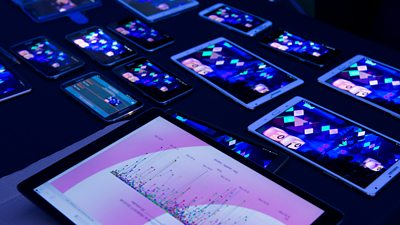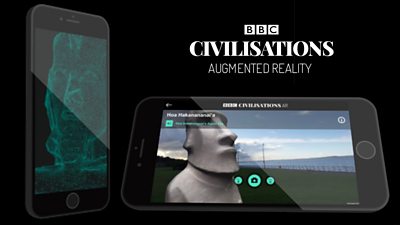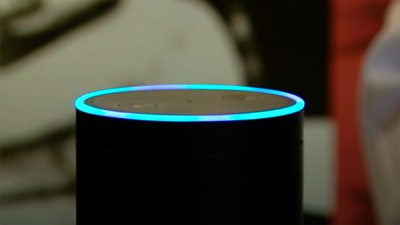Looking back over the past year, a lot has changed in Connected Studio land writes Laura Harrison. Although we’re not running as many events or industry calls, we’ve nonetheless been super busy, having shifted our model to focus more on ways to drive adoption of emerging technology from both within the department and from the industry. I thought I’d settle on a few highlights from 2017 to update you on our work.

In the early part of the year, BBC Director General Tony Hall announced the Culture UK initiative of which R&D play a big role in terms of opportunities and what can we offer as part of this partnership with the UK arts and cultural sector. There have been a few projects throughout the year where we’ve worked with big UK arts festivals - Manchester International Festival (MIF) and Edinburgh Festival (EdFest) where we’ve been working on the idea of a living lab; the ability to use the many performances, debates and exhibitions as a way to trial R&D technology in live environments.
At MIF, we worked with Karl Hyde of Underworld around his installation - Manchester Street Poem - and recorded an interview in binaural sound that was broadcast on 6Music. At Edinburgh, we trialled R&D’s SOMA and IP Studio system to capture BBC radio shows using brick-sized 4k cameras that were remotely controlled, directed and edited by one person from a cloud-based application, and broadcast over IP via BBC Taster. That means they don’t have to be physically present to shoot an event, and in fact can be based anywhere in the world.

We also trialed Broadcast Wi-Fi, understanding the complexities of live streaming content in an environment where there are a lot of people, like live sports venues, and reducing the network problems by sending signals one to many, instead of one to one. We tested R&D’s COGNITUS system for user generated content collection and enhancement, where we asked 20 users to provide content with a particular theme. In addition we started our work in AI Production by understanding how well machines can identify and choose the right shots within an edit of a production, when directly compared with a human. This will inevitably offer potential for the BBC to cover more content rather than reduce the need for human producers!

Outside of the festivals, we’ve been working with the Museum sector with a project called Civilisations - a programme set to air next Spring. We’ve partnered with BBC Arts to offer museums, galleries and libraries an opportunity to create digital experiences using a number of tools and technologies, that can be tested on BBC Taster. We’re also really excited about working to bring their collections and artefacts to life with augmented reality (AR), a framework being run through Reality Labs.
Our work with World Service continued this year, focusing on one country in particular with strategic opportunities to grow the BBC’s global reach: India. With the launch of four new Indian language services in 2017, and a growing population of over a billion, the opportunities for the BBC to reach new audiences in a completely different way are immense. Research from BBC Marketing & Audiences highlighted the nuances within the Indian market that we could use as our focus; more women for example, are now reading the news where until recently in India, news was predominantly read by men. Another global trend relevant in the country is younger audiences wanting the breadth of news in snippets or headlines without the long read and a call for more personal content. Such insights helped us shape the brief that we set for the Indian digital industry.
A small team of us headed to India in April, to hold some workshops with a range of tech companies in Delhi, Guragon, Hyderabad and Bangalore. We’ve set a few challenges this year for Indian based companies, asking questions like “how can we harness the power of machines for data (and visual) journalism?” as well as searching for audience-facing ideas around more personalised or 'anytime content' for Indian audiences.

Continuing in the news space, we supported News Labs in their quest to drive open innovation in news. We organised a number of #newsHACK’s throughout the year looking at challenges in Conversational User Interfaces (CUI), transcription and language technology as well as a collaborative pan-European project called SUMMA (Scalable Understanding of Multi-lingual MediA) with partners including Edinburgh University & Deutsche Welle. These hacks allow the news industry as a whole to experiment collaboratively with new technology in an open environment.
I’m sure you’ll agree, there are some very big and exciting projects underway and there are plenty more in store for 2018, where we hope to offer a few opportunities to the digital industry working with BBC Taster and BBC Three. Until then, here’s to a very happy, healthy and prosperous new year to you all.
Tweet This - Share on Facebook
BBC Connected Studio - Civilisations & the Museum Sector
BBC R&D - IP Studio: Lightweight Live
BBC R&D - Building a Live Television Video Mixing Application for the Browser
BBC Arts - Civilisations Festival
-

Future Experience Technologies section
This project is part of the Future Experience Technologies section
Topics
Search by Tag:
- Tagged with Blog Blog
- Tagged with Production Production
- Tagged with Audio Audio
- Tagged with Networks Networks
- Tagged with Internet Internet
- Tagged with Distribution Distribution
- Tagged with Future Experience Technologies Future Experience Technologies
- Tagged with Broadcast Wi-Fi Broadcast Wi-Fi
